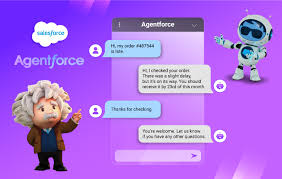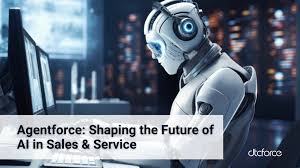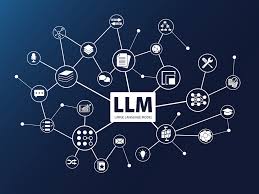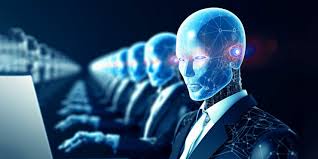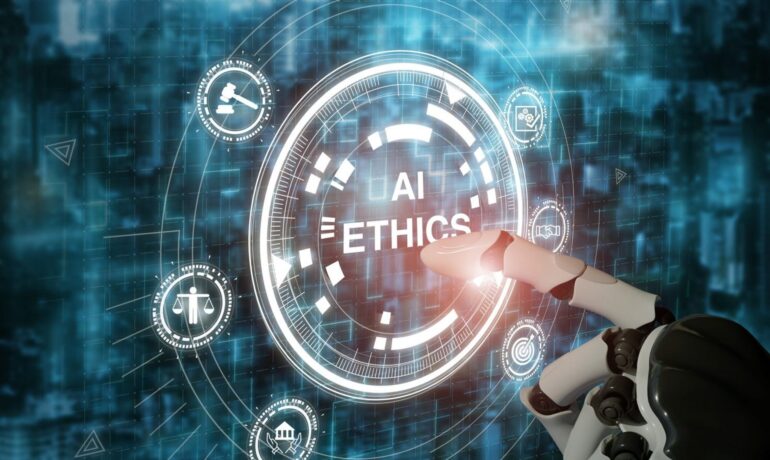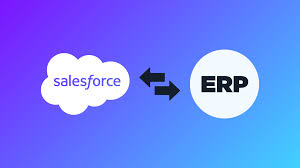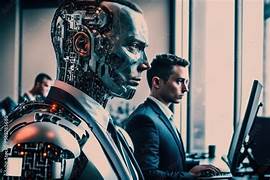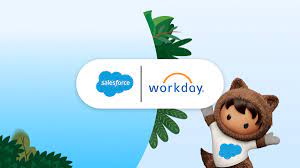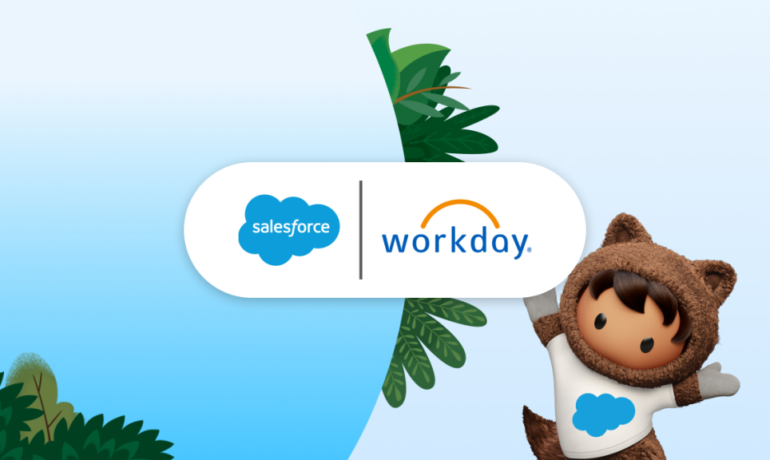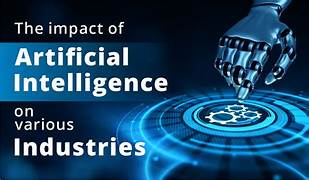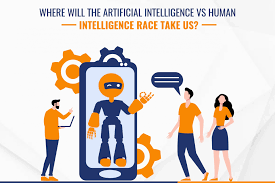Agentforce isn’t just another AI platform that requires months of customization. At most customers, they quickly saw its power, launching transformative generative AI experiences in just days—no AI engineers needed. For companies with larger admin teams, the benefits can be even greater. Unlike other platforms, Agentforce places a strong emphasis on data privacy, building on the trust that Salesforce is known for, making these virtual assistants invaluable. We began with employee-facing use cases, saving our team several hours per week. Now, with Agentforce, we’re seeing even more opportunities to drive efficiencies and better serve our customers. “We’re excited to leverage Agentforce to completely overhaul recruitment and enrollment at Unity Environmental University. Instead of traditional forms or chatbots, our students will soon engage with an autonomous recruitment agent directly on our website, offering personalized support throughout the college application process.”– Dr. Melik Khoury, President & CEO, Unity Environmental University “For first-generation college students, the 1:385 coach-to-student ratio makes personalized guidance challenging. By integrating Agentforce into our platform, we’re deploying cutting-edge solutions to better support students. These agents enable our coaches to focus on high-touch, personalized experiences while handling vital tasks like sharing deadlines and answering common questions—24/7.”– Siva Kumari, CEO, College Possible “Agentforce offers organizations a unique opportunity to move beyond incremental improvements and achieve exponential ROI. By automating customer interactions, improving outcomes, and reducing costs, it integrates data, flows, and user interfaces to mitigate risks and accelerate value creation. This agent-based platform approach allows businesses to harness AI’s full potential, revolutionizing customer engagement and paving the way for exponential growth.”– Rebecca Wettemann, CEO and Principal Analyst, Valoir “Autonomous agents powered by Salesforce’s Agentforce are revolutionizing customer experiences by providing fast, accurate, and personalized support around the clock. With advanced AI making decisions and taking actions autonomously, businesses can resolve customer issues more efficiently, fostering deeper interactions and enhancing satisfaction. This innovation enables companies to reallocate human resources to more complex tasks, boosting individual productivity and scaling business growth. Agentforce is setting new standards for seamless sales, service, marketing, and commerce interactions, reinforcing its leadership in customer experience.”– Michael Fauscette, CEO and Chief Analyst, Arion Research LLC “The best way to predict the future is to invent it.” — Alan Kay, Computer Science Pioneer Technology progresses in what biologists call punctuated equilibrium, with new capabilities slowly emerging from labs and tinkerers until a breakthrough shifts the axis of possibility. These pioneering feats create new paradigms, unleashing waves of innovation—much like the Apple Macintosh, the iPhone, and the Salesforce Platform, which revolutionized the enterprise software-as-a-service (SaaS) model and sparked an entire industry. The Age of Agentforce Begins At Dreamforce 2024, Salesforce Futures reflected on the launch of Agentforce, inspired by visions like the Apple Knowledge Navigator. In 2023, we used this inspiration to craft our Salesforce 2030 film, which showcased the collaboration between humans and autonomous AI agents. Now, with Agentforce, we’re witnessing that vision come to life. Agentforce is a suite of customizable AI agents and tools built on the Salesforce Platform, offering an elegant solution to the complexity of AI deployment. It addresses the challenges of integrating data, models, infrastructure, and applications into a unified system. With powerful tools like Agent Builder and Model Builder, organizations can easily create, customize, and deploy AI agents. Salesforce’s Atlas Reasoning Engine empowers these agents to handle both routine and complex tasks autonomously. A New Era of AI Innovation At Dreamforce 2024, over 10,000 attendees raced to build their own agents using the “Agent Builder” experience, turning verbal instructions into fully functioning agents in under 15 minutes. This wasn’t just another chatbot—it’s a new breed of AI that could transform how businesses operate and deliver superior customer experiences. Companies like Saks, OpenTable, and Wiley have quickly embraced this technology. As Mick Costigan and David Berthy of Salesforce Futures explain, “When we see signals like this, it pushes us toward the future. Soon, we’ll see complex, multi-agent systems solving higher-order challenges, both in the enterprise and in consumer devices.” Shaping the Future Agentforce isn’t just a product—it’s a platform for experimentation. With hundreds of thousands of Salesforce customers soon gaining access, the full potential of these tools will unfold in ways we can’t yet imagine. As with every major technological shift, the real magic will lie in how people use it. Every interaction, every agent deployed, and every problem solved will shape the future in unexpected ways. Platform Evolution Adam Evans, Salesforce SVP of Product, notes that Agentforce builds on the company’s transformation over the past four years, following the pattern of Salesforce’s original disruption of enterprise software. Unlike traditional solutions, Agentforce eliminates the need for customers to build their own AI infrastructure, providing a ready-to-use solution. At the core of Agentforce is the Atlas Reasoning Engine, delivering results that are twice as relevant and 33% more accurate than competing solutions. This engine integrates Salesforce Data Cloud, Flow for automation, and the Einstein Trust Layer for governance. Early Customer Results Early Agentforce deployments highlight how organizations are using autonomous agents to enhance, rather than replace, human workers: George Pokorny, Senior VP of Global Customer Success at OpenTable, shared, “Just saving two minutes on a ten-minute call lets our service reps focus on strengthening customer relationships, thanks to seamless integration with Service Cloud, giving us a unified view of diner preferences and history.” Like Related Posts Salesforce OEM AppExchange Expanding its reach beyond CRM, Salesforce.com has launched a new service called AppExchange OEM Edition, aimed at non-CRM service providers. Read more The Salesforce Story In Marc Benioff’s own words How did salesforce.com grow from a start up in a rented apartment into the world’s Read more Salesforce Jigsaw Salesforce.com, a prominent figure in cloud computing, has finalized a deal to acquire Jigsaw, a wiki-style business contact database, for Read more Service Cloud with AI-Driven Intelligence Salesforce Enhances Service Cloud with AI-Driven Intelligence Engine Data science and analytics are rapidly becoming standard features in enterprise applications, Read more


